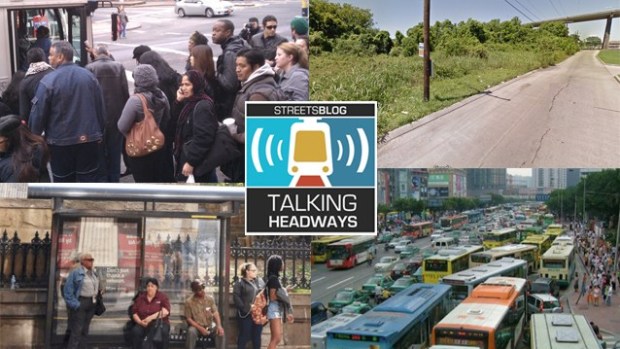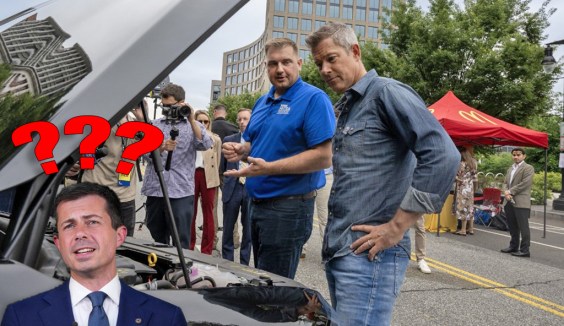This week, Kim Cella of Citizens for Modern Transit and Sheila Holm of AARP discuss how they are transforming transit stops in St. Louis. How do they involve the community, engage transit operators, and bring life to grey spaces?
For those of you who prefer to read rather than listen, check out the edited highlights below the player. If you want a full, unedited transcript, be our guest by clicking here.
Jeff Wood: What does the transformation of a transit stop mean specifically? What are you talking about when you’re talking about transformation, and (I’m kind of getting deeper into the weeds in terms of the words) what does it mean to actually transform a station?
Sheila Holm: We’re not building big stuff, okay. It’s not transit oriented development. It really is trying to create a sense of place at the station; it’s to make it more enjoyable; it’s so that it responds to the needs and interests of the individuals who use the stop and use it, meaning the transit riders, the operators, anyone that comes to that stop passes by the station. So it’s the community at large, but it’s not huge. It’s what’s important to you and how can we transform this space within our limited budget and create a sustainable space for years to come.
Kim Cella: I think part of what has happened is a lot of these stations are an afterthought in these communities or in these neighborhoods. They’re not really a part of what is happening in those areas. They’re not a part of the fabric of the community. And what we found when we focused on these stations is that by engaging the community, we make sure we’re delivering something that the community really wants or needs. In our first pilot project, it was an afterthought adjacent to a parklet with nothing around it. And by engaging the community, we found they wanted a front porch to their downtown main street.
It was a bus stop. And we were able to deliver that. Jeff, just by listening to the community; it’s a soft touch. It’s not massive infrastructure, but that soft touch on those sites is bringing increased investment to some of the stations that we’ve already looked at and we’ve already completed. And I think part of it is just opening the dialogue and changing the dialogue around what public transit could be rather than this afterthought or the side piece that sits over here. And we only use it if we’re going to get on the bus or we’re going to get on the train and we’re going to connect. So this makes it important, not only to the riders, but the residents and the surrounding businesses as well.
Sheila Holm: Using the example of Maplewood: When we took this stop, it was completely separated from the rest of the community. It was for those people, whoever those people are. And now we have everybody that just sits in one of the shelters because it’s cool. Because one of them has a glider, you know? And so they just will sit in glide. You know what I mean? It feels like it’s part of the community, as Kim was stating, and that’s really been a goal for every stop. It becomes more of: "Transit. It’s cool. Let’s go use it."






